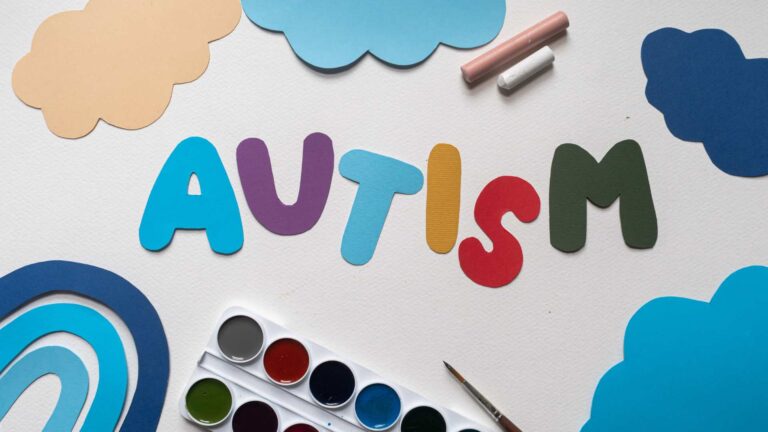ABA therapy is only possible with the assistance of a Board Certified Behavior Analyst (BCBA). BCBA professionals are at the forefront of ABA therapy. They are responsible for designing and implementing behavioral intervention plans, ensuring that individuals with autism progress, and helping them achieve their goals of thriving in daily life.
Applied Behavior Analysis (ABA) is the approach health professionals endorse for treating individuals diagnosed with autism spectrum disorder (ASD). This scientific, outcome-based method has been proven for decades to be effective in teaching new behaviors to people with autism, thereby strengthening their skills and improving their weaknesses. BCBAs are responsible for providing the assistance that individuals with autism need to face the world´s challenges.
Suppose you or a loved one has been diagnosed with autism spectrum disorder. In that case, understanding the roles of critical professionals in ABA therapy is crucial for clarity regarding their responsibilities and how they can help.
At ABA Centers of Tennessee, we prioritize having the best talent, ensuring that our BCBA professionals are individuals of integrity who play a pivotal role in the progress of people with autism participating in ABA therapy.
This article will explore a BCBA’s definition, functions, requirements, and fundamental role in ABA therapy.
1. What Is a BCBA?
Individuals with autism participate in ABA therapy to enhance their social, communication, academic, and adaptive skills. Through positive reinforcement, ABA therapy professionals aim to increase desired behaviors and reduce the repetition of unwanted behaviors. A Board Certified Behavior Analyst (BCBA) turns these goals into reality.
A BCBA is a professional specializing in behavior analysis and applying ABA principles to assess, design, and ensure that behavioral programs meet the needs of individuals with developmental and behavioral challenges. ABA therapies are particularly effective in assisting people on the spectrum to thrive in life, gain independence, and adapt to their communities.
Main Functions Of a BCBA
- Behavioral Assessment: The initial step in crafting a plan for an ABA therapy program involves conducting a behavioral assessment of the patient. BCBA professionals perform these assessments meticulously to identify skills that require reinforcement and the sources of problematic behaviors. BCBAs utilize assessment tools, direct observation, and data analysis to gather vital information about the individual’s behavior patterns.
- Personalized Treatment Design: After obtaining behavioral assessment results, BCBA professionals are responsible for developing individualized treatment plans tailored to each client’s needs and goals. All individuals with autism are unique and have different symptoms and strengths, so having a treatment plan tailored to those needs is critical. Treatment plans focus on teaching new skills while reducing problem behaviors using evidence-based ABA techniques.
- Behavioral Intervention: BCBA professionals are responsible for implementing intervention programs using research-supported techniques that effectively address innocuous and maladaptive behaviors. Board Certified Behavior Analysts work collaboratively with the client, their families, and other team members, such as Registered Behavior Technicians (RBTs), to ensure the correct application of these techniques, resulting in positive outcomes.
- Data Collection and Analysis: ABA therapy hinges on data-driven decision-making, and BCBA professionals have the task of consistently gathering this data. Armed with this information, the BCBA can analyze the client’s progress, assess the intervention’s efficacy, and refine the treatment plan as required. For instance, a BCBA might analyze the number of attempts a neurodivergent child needs to brush their teeth, deducing whether the intervention plan is effective or needs adjustments for future learning.
- Supervision and Training: BCBA professionals supervise Registered Behavior Technicians (RBTs) and other professionals who work directly with clients. In addition, they are responsible for providing guidance and training to these professionals to ensure RBTs deliver treatments according to their guidelines and maintain the highest level of care.
- Collaboration and Communication: BCBA professionals collaborate actively with clients, their families, caregivers, and other professionals involved in ABA therapy. BCBA professionals are responsible for maintaining open communication channels to share the progress and challenges and develop unified intervention strategies.
The relationship between a BCBA and a family with autism is vital to learning about the child’s behavior and the ABA strategies to implement at home.
2. Requirements To Become a BCBA
According to statistics, there are 59,976 BCBA professionals in the United States, with a considerable growing demand expected to increase by more than 20% in the next eight years. However, becoming certified as a BCBA is a challenge. Obtaining a license to work as a BCBA involves prior approval by the state boards that set the following education and training requirements:
- Academic Background: One of the prerequisites for obtaining BCBA certification is holding a master’s degree in a field related to behavior analysis, applied behavior analysis, psychology, or education. Several universities offer specialized programs to fulfill the Behavior Analyst Certification Board (BACB) course requirements.
- Previous Experience: Candidates for certification as BCBAs must have supervised behavior analysis experience; this is why many BCBAs began their careers as RBTs. A BACB requires several supervised hours that include direct client contact and behavior analytic work before working independently with a client.
- Approve The BACB Exam: Candidates can take the BCBA certification exam upon fulfilling the requirements above. Administered and endorsed by the BACB, this four-hour exam comprises 180 questions. It assesses candidates’ comprehension and application of behavior analysis principles and ethical practices.
- Comply With Ethical Codes: The BACB sets stringent ethical codes that BCBAs adhere to rigorously, ensuring professionalism in therapies and client interactions. These standards emphasize high levels of professionalism, confidentiality, and prioritization of client welfare.
- Ongoing Professional Development: BCBAs must stay updated on the latest research and advancements in behavior analysis. They continuously enhance their knowledge and skills to offer the most effective and current interventions.
3. The Role of the BCBA in ABA Therapy
ABA therapy has been the most effective approach for encouraging positive behaviors and teaching skills in people with autism over the past decades. With positive reinforcement, patients receive incentives and rewards for new behaviors and learning, making this therapy fun and dynamic. The goal of ABA therapy is to increase adaptive behaviors, such as communication, social skills, self-care, and play skills, and to reduce problem behaviors, such as aggressive behaviors.
To achieve the aims of ABA therapy, ABA therapists use evidence-based techniques to analyze behavior and develop a customized treatment plan suitable for diverse settings like homes, schools, clinics, or communities. The BCBA’s role involves:
- Designing the action plan.
- Overseeing its day-to-day implementation by the RBT.
- Collecting progress data from the client.
Afterward, the BCBA evaluates the data to ensure the intervention’s effectiveness and makes necessary adjustments.
The roles of the BCBA and RBT in ABA therapy are complementary. Active communication among BCBAs, RBTs, and families of individuals with autism is crucial for enhancing the well-being and development of neurodiverse individuals.
ABA Centers of Tennessee Offer BCBA-Prepared Therapy
ABA Centers of Tennessee offers various autism services, including diagnostics and in-home ABA therapy. Furthermore, we prioritize your child’s care through a highly trained professional team. Our commitment is evident in the additional, comprehensive in-house training we provide to our team of BCBAs, further enhancing their proficiency in managing intricate situations.
Our BCBAs are genuinely passionate about assisting the autism community in attaining independence, thriving in interpersonal relationships, and leading fulfilling lives. So, whether you are a BCBA or know someone who is, we invite you to explore the current job openings and consider joining the ABA Centers of Tennessee family.
To learn more about our ABA therapy or diagnostic services, please call (844) 423-9483 or contact us via our website. For a more profound understanding of autism, we invite you to explore our blog, regularly updated with valuable information.




